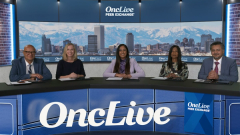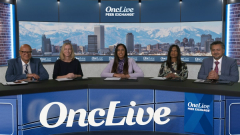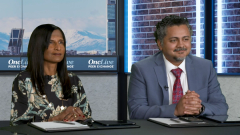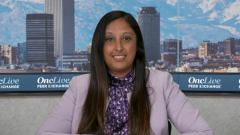
The Evolving Landscape of Newly Diagnosed Multiple Myeloma
A panel of experts discuss the evolving landscape of newly diagnosed multiple myeloma.
Episodes in this series

This is a video synopsis/summary of a Peer Exchange featuring Krina K. Patel, MD, MSc; Amrita Krishnan, MD; Caitlin Costello, MD; Saad Z. Usmani, MD, MBA, FACP; and Rafat Abonour, MD.
Patel provides an overview of recent developments in treating newly diagnosed multiple myeloma patients. The distinction between transplant-eligible vs ineligible is blurring, with some fit patients choosing to defer transplant. Triplet regimens have shifted to quadruplet regimens incorporating anti-CD38 monoclonal antibodies like daratumumab or isatuximab. Studies like GRIFFIN and PERSEUS show quadruplet regimens improve responses over triplets for both standard-risk and high-risk transplant-eligible patients.
For transplant-ineligible/frail patients, lenalidomide-bortezomib-dexamethasone (RVd) remains an option, but daratumumab-lenalidomide-dexamethasone (DRd) based on the MAIA trial may provide an even longer treatment-free interval. For high-risk transplant-ineligible patients, a quadruplet approach with RVd plus daratumumab is also being studied.
A key goal of therapy has become attaining minimal residual disease (MRD) negativity, which is associated with improved progression-free and overall survival. The depth of response seen with quadruplet regimens may help support regulatory approval of MRD as a biomarker for novel agents.
Video synopsis is AI-generated and reviewed by OncLive® editorial staff.








































